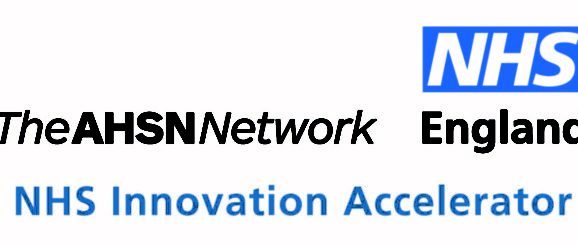SkinVision to join NHS Innovation Accelerator | SkinVision

App empowering people to monitor themselves for early signs of skin cancer selected to join NHS Innovation Accelerator
SkinVision, An app which empowers people to monitor themselves for early signs of skin cancer is one of four new technologies supporting earlier diagnosis and prevention of cancer, selected to join the NHS Innovation Accelerator.
Through the award-winning NHS Innovation Accelerator (NIA) – an NHS England initiative delivered in partnership with England’s 15 Academic Health Science Networks – SkinVision will be supported to spread across the NHS over the next three years, ensuring that people at risk of skin cancer are diagnosed and treated earlier.
Developed in the Netherlands, SkinVision enables the user to take a photo of their skin spots via a smartphone camera. Within 30 seconds they will receive a risk indication on skin cancer risk level ranging low, medium or high. In the case of a high-risk rating, the user will receive advice within 48 hours from SkinVision advising them on next steps to take. Clinical studies demonstrate that the overall accuracy of the app in recognising skin cancer (melanoma, BCC, SCC and pre-malignant stages) is in line with experienced dermatologists. It is available to download on both iOS and Android.
Incidence of skin cancer is increasing rapidly, with an estimated 159.000 people diagnosed with some form of the disease in 2015, with over 3.600 related deaths in the UK. It is predicted that 1 in 5 UK citizens will get some form of the disease in their lifetime.
Early detection is key for a more favourable prognosis, but most people don’t know what to look for.
The sooner skin cancer is detected, the higher the possibility of successful treatment and survival. SkinVision has over 1.2 million users globally and has contributed to the finding of 27,000 cases of skin cancer.
In the future, it is hoped local NHS groups might buy a licence for the app, enabling GPs to encourage their patients to download the App, particularly those who have had problems in the past, so they can use it free of charge.
Professor Stephen Powis, NHS Medical Director, said: “The NHS Long Term Plan puts the latest technology and innovation at the heart of people’s care and the future of our health service.
“Right across the NHS patients are benefitting from world-beating innovations, spread as part of this programme, and now even more patients will be supported by new tools like the app which uses AI to help identify skin cancer, puts people in control of their care and enables them to get treatment as quickly as possible.”
Erik de Heus, CEO of SkinVision, said of the announcement: “We are very proud that SkinVision is able to provide support to the NHS in saving many people’s life whilst making the health system more effective and reducing costs.”
“The hard work Insurance Provider CZ and SkinVision have done in the past year, proving the technology can be integrated with the Dutch health system, is now recognized as best practice in deploying machine learning technology. It is ready for rollout in large population health systems.”
“We know from studies conducted here in the Netherlands that 70% of visits to GP related to suspicious skin spots are unnecessary, by the use of the app it is hoped that this number can be drastically reduced, freeing up GPs to run their practice more efficiently and to see more patients. By bringing down the cost of diagnosing sufferers and by ensuring that they enter the health system earlier, we bring down costs and help ensure that money can be diverted to fund new treatment such as immunotherapy and free up clinicians to work more effectively.”
Since launching in 2015, the NIA has supported the uptake and spread of 37 high impact, evidence-based innovations across more than 1,700 NHS sites and £79.3M in external funding has been raised. SkinVision is the only non-UK company chosen to take part in the Accelerator this year.
SkinVision was founded in 2012 and is an awareness and tracking solution that supports individuals with the early recognition of Melanoma, Squamous Cell Carcinoma, Basal Cell Carcinoma and Precancerous Actinic Keratosis. SkinVision is the first certified skin cancer application based on extensive clinical trials, conducted in partnership with the university clinic of Ludwig Maximilian University (LMU). The results of these trials were first published in the JEADV in 2014. The most recent data shows a sensitivity of 95% and a specificity of 80%. Well above that of a GP (sensitivity 60%), a dermatologist (sensitivity 75%) and even a specialist dermatologist (sensitivity 92%).
The company has built up a customer portfolio of 1,200,000 users globally and a database of 3.5 million pictures of suspicious and benign skin lesions. SkinVision is headquartered in Amsterdam, the Netherlands.
Notes to editors:
For more information, contact Matthew Enevoldson:
